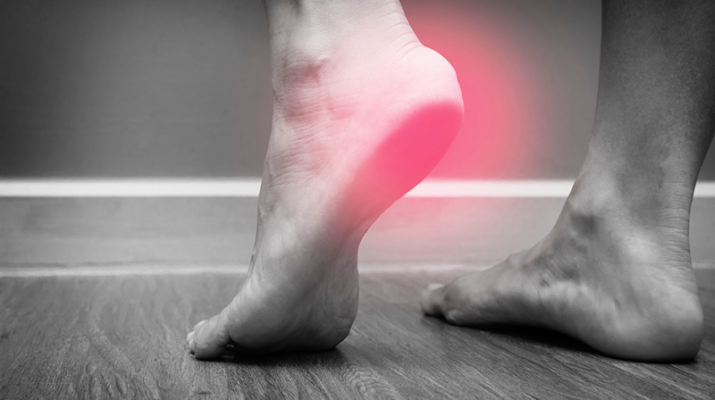By Ernst Lamothe Jr

Consistent foot care is often overlooked until it’s too late. However, decisions you make about your overall health can impact your feet.
Diabetes complications can include nerve damage and poor blood circulation that can affect the feet and lead to amputations if not properly handled.
Peripheral vascular disease is a very common illness that unfortunately affects many middle-aged and elderly adults. This disease can be due to many other illnesses such as diabetes, poor diet, smoking and some genetic disorders.
“People need to understand that footcare is paramount to your quality of life,” says John Turano, podiatrist at Eastside Podiatry in Rochester “In order to keep an active life, you have to take care of your feet.”
1. Mobility and mood
The National Institute of Health produced a study talking about depression in older people with lack of mobility. There is convincing evidence that physical disability results in increased unhappiness, frustration and melancholy.
“When you are not able to move the way you want or you feel pain simply walking, we have found that people can become depressed,” said Turano. “Foot care is often seen as out of sight and out of mind, but you have to understand that there is a correlation between your physical aspects of your body and your mental state.”
2. Genetics play a part
A key misconception surrounds how people get certain foot problems.
“Some people think that all their foot problems are caused by improper shoe gear. While that can be the case in some respects, a lot of hammer toe, bunions and other foot issues are caused by genetics,” said Turano.
He suggests that because of genetics, you may be prone to various foot ailments, so it may be best to speak with a podiatrist or a shoe specialist.
“There are places that still measure your feet and can tell you if you are flat-footed, have arch problems or any other issue,” he added.
3. Seeing a podiatrist
While a podiatrist isn’t someone you need to see every year like a primary care physician, there are some exceptions. A great indicator that you need to see a podiatrist is if you have chronic foot or heel pain.
“If you are diabetic then foot care is a large portion of your treatment and maintenance,” said Turano. “You should at minimum see a podiatrist yearly in that case and depending on how severe it could be more often.”
In addition, if you see something on your feet, it’s essential to say something to a professional.”
4. Non-genetic issues
There are a few foot-related things that have nothing to do with genetics. One of those conditions is plantar fasciitis, which is the inflammation of tissue in the foot used during walking and foot movement. It can be caused by a number of factors, including type of shoes, foot structure, overuse and types of walking surface.
“Another is heel pain. If you begin to feel that kind of chronic pain, you should see a podiatrist. I would also suggest that if this occurs, you limit the activities that emphasize the pain,” he added.
5. Winter care
The colder temperatures can wreak havoc on your foot. Be wary about being outside for too long in dangerous conditions.
“We see a good amount of frostbite in our area during this season,” said Turano. “People think that having two pairs of socks make all the difference in cold weather but it can also limit your circulation.”
It is important to keep moisturizing your feet during the winter.
“Don’t forget to lotion your feet to avoid crackling skin and make sure you spend once a week actually looking at your feet. Take a look at the whole feet including the bottom to see if you notice anything out of the ordinary,” he added. “You may find warts, ingrown nails and other ailments that need to be handled immediately.”

